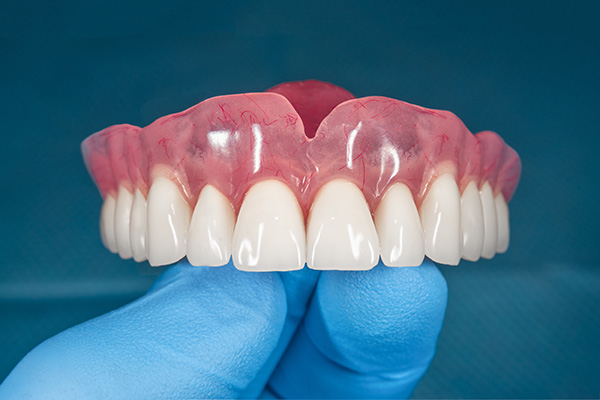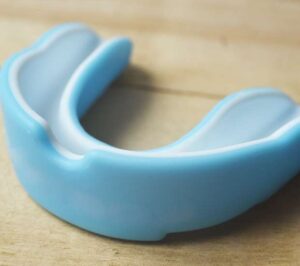 If you have dentures, it is critical to correctly care for them so that the teeth stay in good condition. That way, you will be able to enjoy them for a long time to come.
If you have dentures, it is critical to correctly care for them so that the teeth stay in good condition. That way, you will be able to enjoy them for a long time to come.
The right care will also prevent serious oral health issues. Keep reading to learn more about caring for your false teeth.
Cleaning the teeth
After eating, patients should rinse the dentures by running water over them. That loosens particles such as food debris. Placing a towel over the sink or counter reduces the risk of breakage. If the dentures fall, the teeth will land on the towel, not shatter on a hard countertop. It is critical to handle them carefully.
It is also essential to brush the dentures once a day or more. After soaking, the patient can use a soft denture brush and cleaner on them. That removes deposits such as plaque and food. If the patient has a denture adhesive, it is possible to clean the grooves that meet the gums. That gets rid of old adhesive. However, the cleaner should not be used in the mouth.
When the patient takes out the teeth for the night, it is essential to soak them. The teeth often need to stay wet to remain in the correct shape. Either denture solution or water is possible to use. The dentist can offer more advice on storing the teeth during the night.
Before replacing the teeth in the mouth, the patient should rinse them well. That is particularly true if they used a denture solution. There can be harmful chemicals in them. If swallowed, they might cause issues like pain or vomiting.
Regular oral health care
The dentures are not the only things patients need to care for. It is equally critical to care for the mouth to keep it healthy. That is true even if no teeth are remaining. The mouth needs cleaning each time the dentures come out. The patient can use a soft toothbrush if there are any remaining teeth. For the cheeks, palate, and gums, gauze can be used to remove bacteria and any denture adhesive.
What to avoid
Patients should avoid using abrasive cleaners, such as regular toothpaste, on the dentures. These might cause scratches. A rougher surface is an ideal place for bacteria to attach to. It is also vital to avoid stiff toothbrushes or strong cleaners.
Whitening toothpaste will not make the false teeth brighter. These substances have peroxide in them, which works on natural teeth, not dentures. Plus, the toothpaste can scratch and otherwise damage the teeth. Other products with bleach should also be avoided since these might weaken the false teeth, changing the color. Finally, hot water might warp the teeth or adjust the fit incorrectly.
Choose the right dentures today
It is possible to keep the dentures looking white and clean. But it will take some dedication on your part. If you are considering getting dentures, your dentist can help you make the right decision. Making an appointment today is the first step.
Check out what others are saying about our dental services on Yelp: Dentures and Partial Dentures in Tamarac, FL
Call Us Today
Request an appointment or call The Dental Place of Tamarac at 954-271-8072 for an appointment in our Tamarac office.
Related Posts
If someone is missing teeth, it is imperative to replace them as soon as possible. Implant-supported dentures are one option for replacement. These fixed dentures allow for an effective and natural bite, which means that the wearer can eat normally. Unlike traditional dentures, implant-supported ones are attached to the jawbone, which prevents bone loss and…
Considering overdentures? Read on to learn more about this tooth-replacement solution from an implant dentist. Implant overdentures are a great way to replace a section or an entire row of missing teeth. Implant dentists may recommend overdentures for patients who want a permanent and long-term solution to teeth replacement and are capable of going through…
Dentures can restore normalcy to the functions of chewing and eating, but for first-time wearers, there is a period spent adjusting to new dentures. By asking a dentist about this transitionary period, it is possible to minimize the discomfort and awkward mishaps that often accompany getting used to a new dental appliance. In addition, dealing…
We are committed to providing quality healthcare to families located in the Tamarac area and treat patients of all ages.
The Dental Place of Tamarac
7300 W McNab Rd Ste 115
Tamarac, FL 33321
Phone: (954) 271-8072
Book Your Appointment Today!




